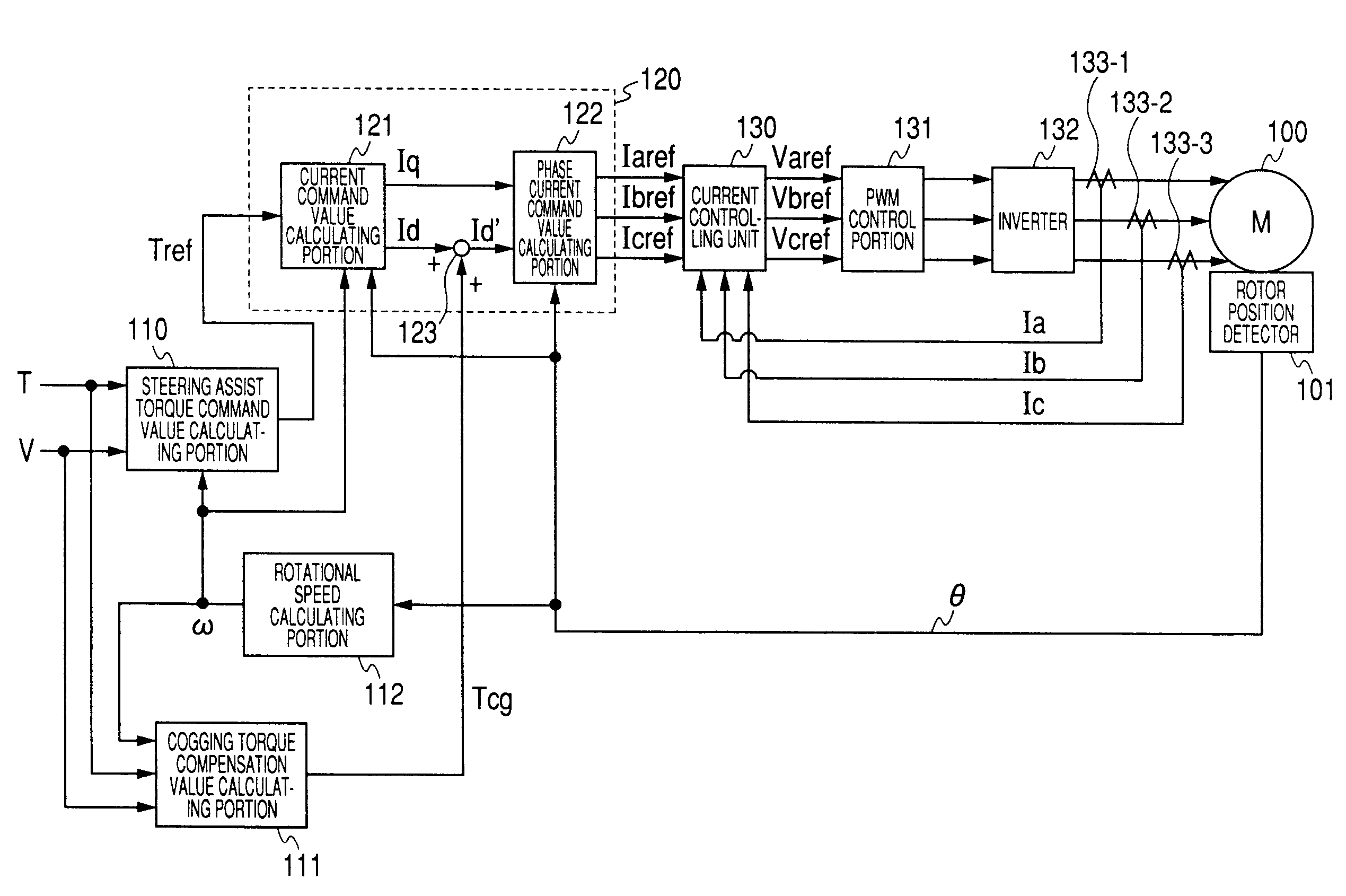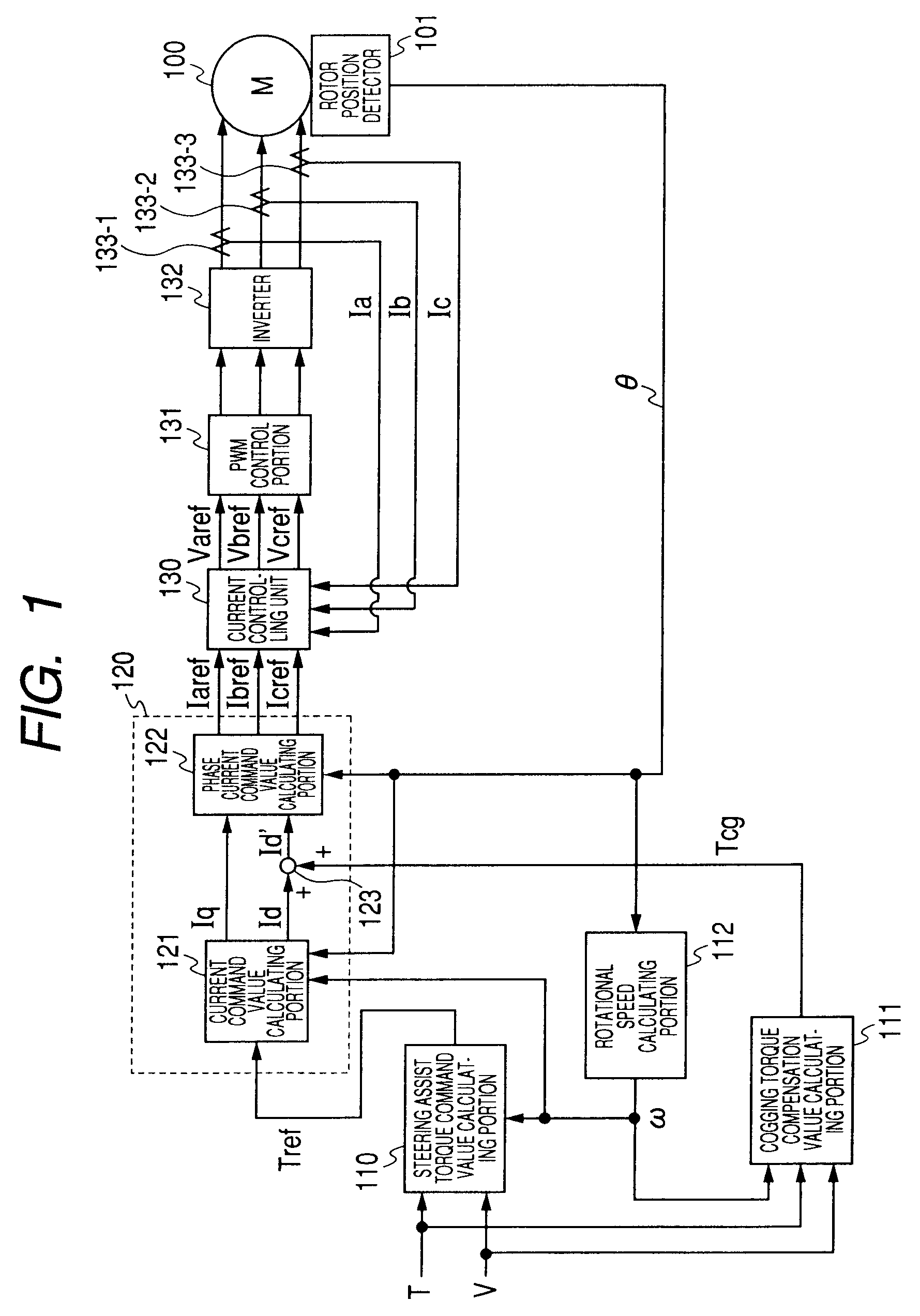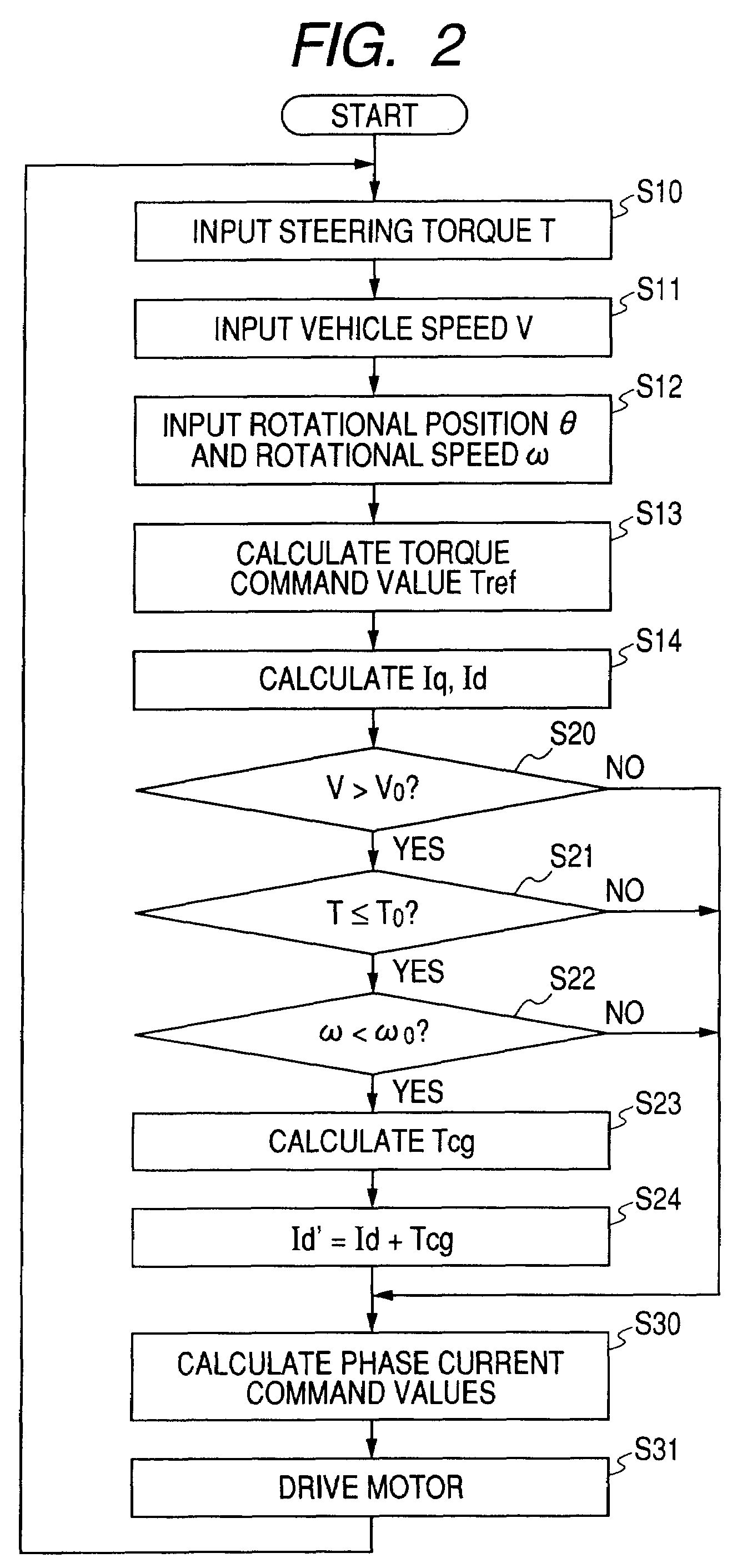Electric power steering apparatus and controller therefor
a technology of electric power steering and controller, which is applied in the direction of electric motor control, dc motor speed/torque control, transportation and packaging, etc., can solve the problems of reducing the degree of freedom in the deign of the motor, impaired steering feeling, and impaired follow-up property of the motor with respect to a control command value, etc., to reduce the loss torque of the motor, and reduce the loss of iron. physical
- Summary
- Abstract
- Description
- Claims
- Application Information
AI Technical Summary
Benefits of technology
Problems solved by technology
Method used
Image
Examples
first embodiment
[0071]At first, first and second embodiments relate to aspects of the invention in which a controller is provided with a cogging torque compensation value calculating portion is described.
[0072]Conventionally, reduction of cogging torque is performed by improving the structure of a motor as described in JP-A-2003-250254, or by performing correction so as to offset the torque with a target torque as described in JP-A-2005-67359. In the invention, by contrast, attention is focused on the principle of generation of cogging torque, and simple control logic can surely reduce the cogging torque without requiring addition of expensive hardware.
[0073]First, the principle of generation of cogging torque on which the invention is based will be described.
[0074]Usually, cogging torque is produced by a change of the magnetic energy in a gap in accordance with movement of a magnetic pole of a permanent magnet. The change of the magnetic energy is caused by a winding slot. When θ is the movement a...
second embodiment
[0095]FIG. 4 shows a second embodiment of the invention in which a current-feedback is performed on the d-q axes. FIG. 4 is illustrated so as to correspond to FIG. 1. That is, the phase currents Ia, Ib, Ic from the current detectors 133-1, 133-2, 133-3 are converted to two-phase currents I1, I2 in a three to two-phase converter 135, and the current controlling unit 130 calculates two-phase voltage command values Vqref, Vdref. Namely, a current-feedback is performed on the d-q axes. The two-phase voltage command values Vqref, Vdref are supplied to a two to three-phase converter 134, and then converted to the three-phase voltage command values Varef, Vbref, Vcref based on the rotational angle θ. The operation after the voltage command values Varef, Vbref, Vcref is identical with that in FIG. 1.
[0096]Also in the current-feedback system on the d-q axes, the correction by the cogging torque compensation value calculating portion 111 can be similarly applied.
[0097]The operation in the cas...
third embodiment
[0102]Hereinafter, third embodiment of the invention will be described with reference to the accompanying drawings. In the embodiment of the invention, an example in which a three-phase brush-less motor is used as a steering assist motor will be described.
[0103]FIG. 8 shows a configuration example of the controller according to the invention. The three-phase brush-less motor 1100 is drive-controlled by the vector control. In the vector control, the q-axis which is a coordinate axis of a rotor magnet, and which controls torque, and the d-axis for controlling the flux strength are independently set, and currents respectively corresponding to the axes are controlled by the vector because the axes are in a 90-deg. relationship. In the invention, a friction compensation flux-weakening current If which is calculated based on the steering torque T, the vehicle speed V, and the rotational speed ω is added to a d-axis current command value Id for the vector control, thereby performing fricti...
PUM
 Login to View More
Login to View More Abstract
Description
Claims
Application Information
 Login to View More
Login to View More - R&D
- Intellectual Property
- Life Sciences
- Materials
- Tech Scout
- Unparalleled Data Quality
- Higher Quality Content
- 60% Fewer Hallucinations
Browse by: Latest US Patents, China's latest patents, Technical Efficacy Thesaurus, Application Domain, Technology Topic, Popular Technical Reports.
© 2025 PatSnap. All rights reserved.Legal|Privacy policy|Modern Slavery Act Transparency Statement|Sitemap|About US| Contact US: help@patsnap.com



